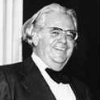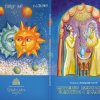Величанствена Три српска дана Српског народног савеза 2016.
Манифестација је почела приказивањем документарног филма о Хелијард мисији у Катедрали знања Питсбуршког универзитета. Филм је посвећен Џорџу Војновићу, једном од главних учесника ове мисије. Војновић је заједно са својим колегама Џорџом Муслином, Ником Лалићем, Артуром Џибилијаном и другима радио на спашавању преко 500 савезничких пилота у Прањанима у сарадњи са четничким трупама генерала Драже Михајловића. Војновић је говорио у филму о детаљима акције, начину како је она изведена и описао шта је претходило његовом учествовању у овом херојском подухвату.
Публика је била веома узбуђена гледајући цео ток операције што је на крају филма награђено великим аплаузом за целу екипу која је припремала овај филм. Захваљујући Милани Бижић на пројекцији филма су били присутни Ксенија Војновић Вилкинсон, Војновићева ћерка, која је изразила велику захвалност за приказивање филма о њеном оцу, Дејан Живковић, редитељ филма и амерички потпуковник Џон Капело. Потпуковник Капело је говорио како се заинтересовао за Хелијард мисију и са којим се све подацима сусрео радећи на овом филму. Милана Бижић је изразила захвалност екипи и гледаоцима филма који су имали прилику да више сазнају о овој херојској акцији.




